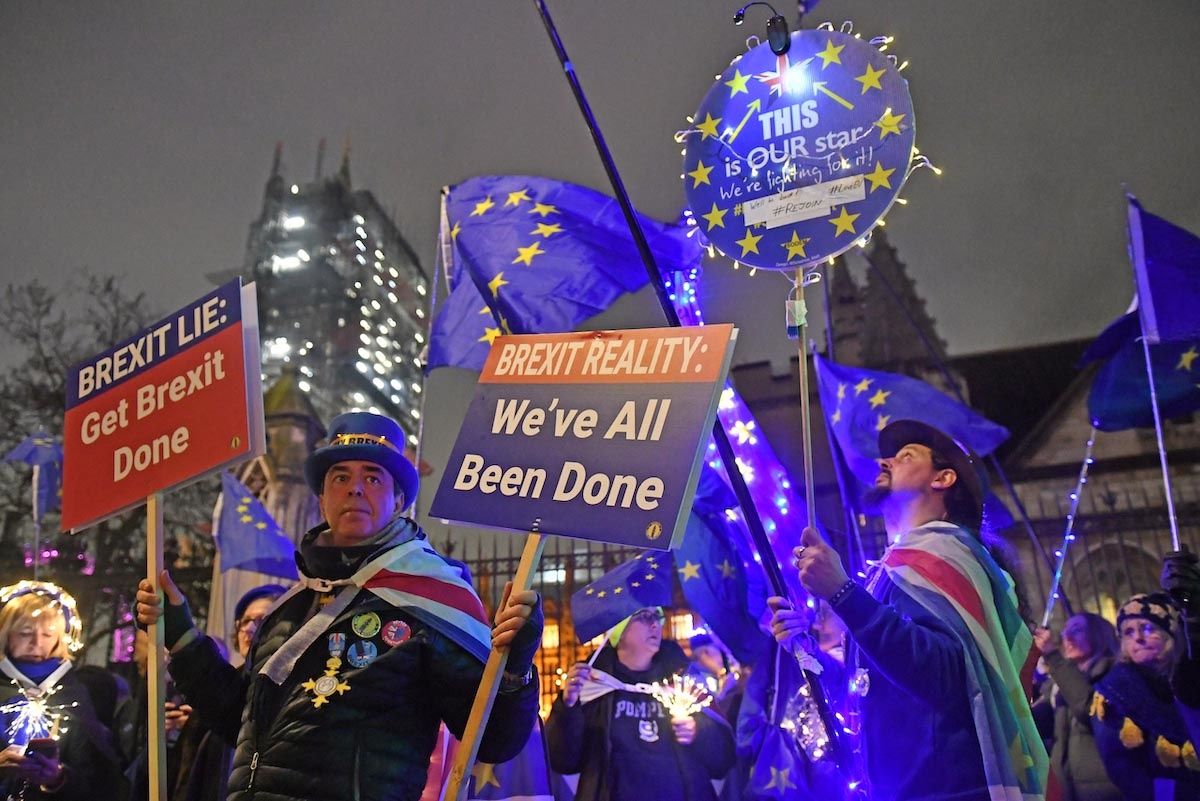At eleven o'clock this evening in London, the United Kingdom will officially escort itself out of the EU. After nearly half a century of an oft-contentious cross-channel relationship, Britain is now free to see other people. But what happens now? Is this really the end of the uncertainty and anguish that have gripped the UK since the 2016 referendum?
Not quite.
The UK is formally out of the EU, sure. But the clock is now ticking on a host of other issues.
Across the channel – The two sides still need to define their new relationship on a host of thorny issues, including trade, military and law enforcement ties, regulation, financial markets integration, and even fishing rights.
They have an 11-month grace period to work all that out. That's not a lot of time given the contentious issues involved. If nothing is agreed by December 31, then we'd be in the dreaded "no-deal" Brexit scenario, which would be economically damaging on both sides of the channel. Boris Johnson says he won't ask for an extension – which he'd have to do by July – setting up more high-wire politics as we lurch towards the summer.
Across the pond – After leaving the world's largest economic bloc, Johnson is eager to strike a fresh deal with the world's number one economy. But although the US is the UK's closest ally – a bond supported by their current leaders' mutual affection for populist messaging and awful hair – London and Washington have beefs. London recently bucked US demands to ban Huawei from building 5G networks in Britain, and Johnson says he's moving ahead with a digital services tax on US tech giants, despite Trump's threats to retaliate. Iran could also prove contentious: London, along with its erstwhile EU partners in Paris and Berlin, has said it wants the beleaguered Iran nuclear deal to survive, but Johnson has also called for a new "Trump Deal" to replace it. What side is he on?
Across the Irish Sea – Johnson also needs to manage fallout closer to home. His Brexit plan artfully avoids creating a potentially dangerous "hard border" with Ireland. But the fact remains that Brexit was not popular in Scotland or in Northern Ireland. Nationalists in both places want fresh referendums on whether to stay in the UK. Johnson has already refused to allow Scotland to call another independence referendum, and would likely do the same for any request for a Northern Irish "border poll" on unification with Ireland. The UK isn't about to fall apart, but over time these pressures will grow, particularly if the UK-EU negotiations become deadlocked later this year.






